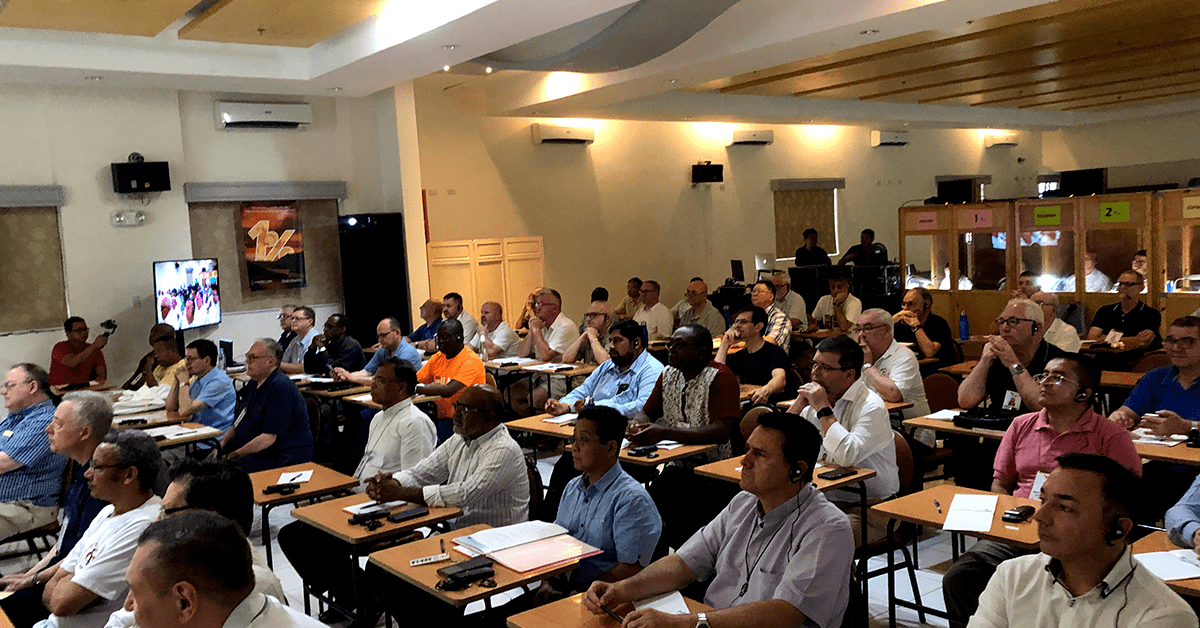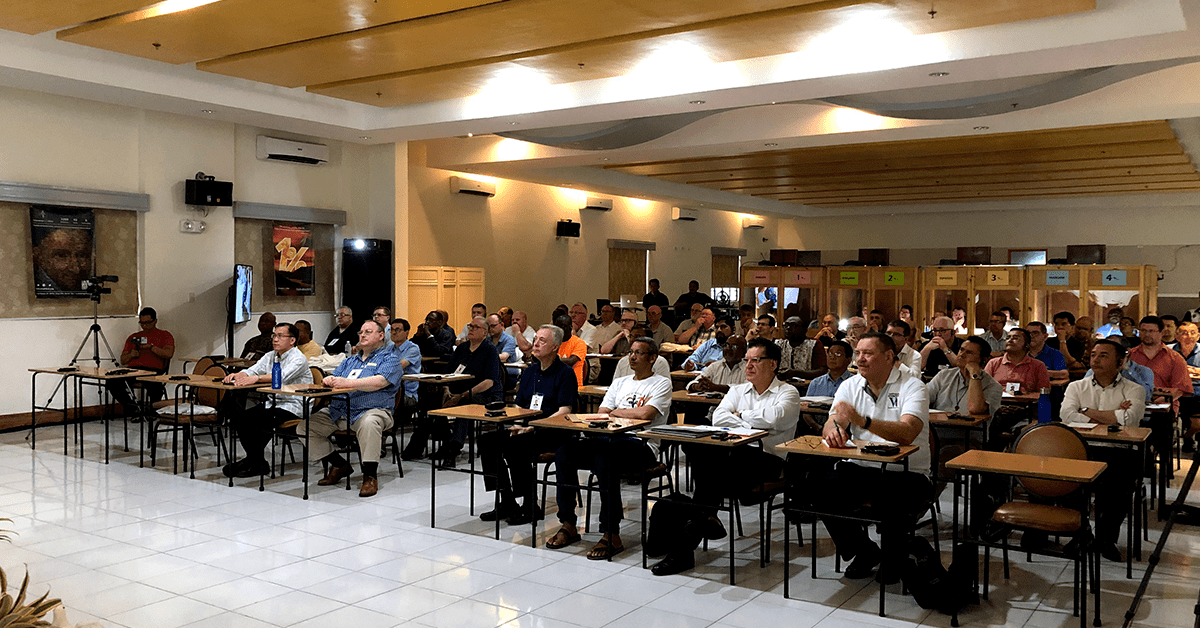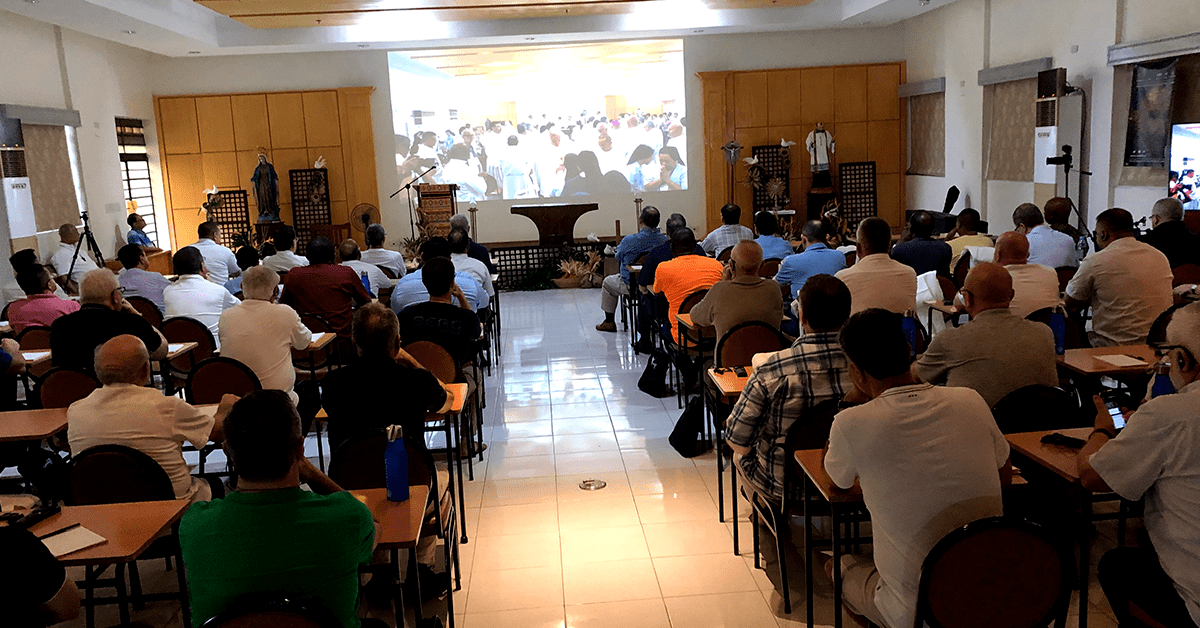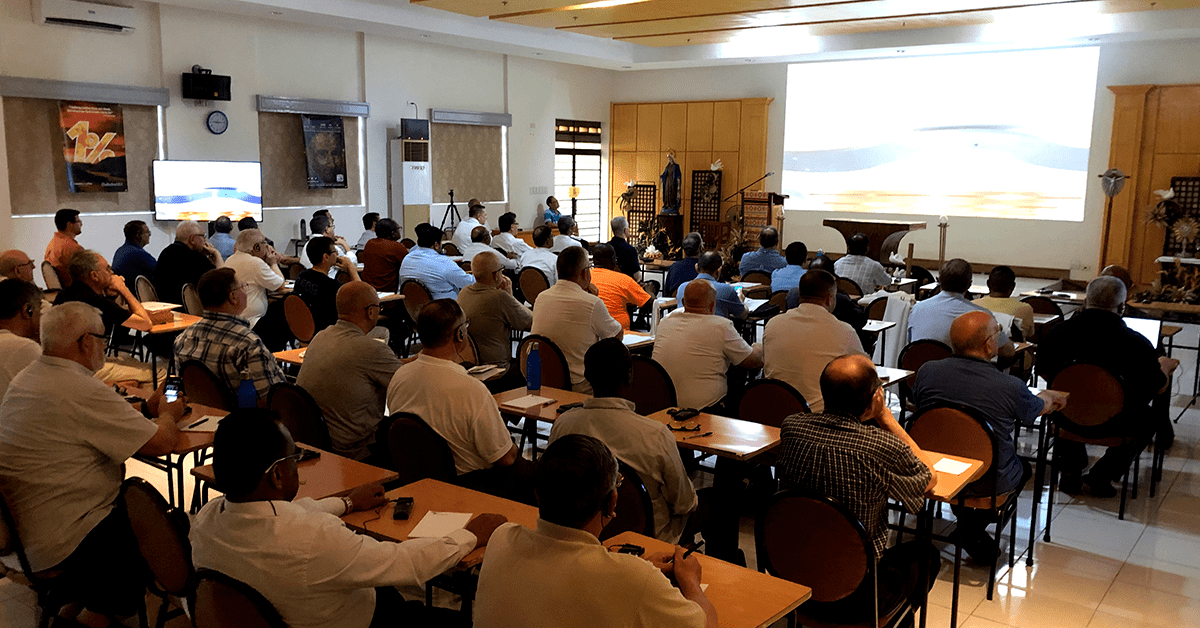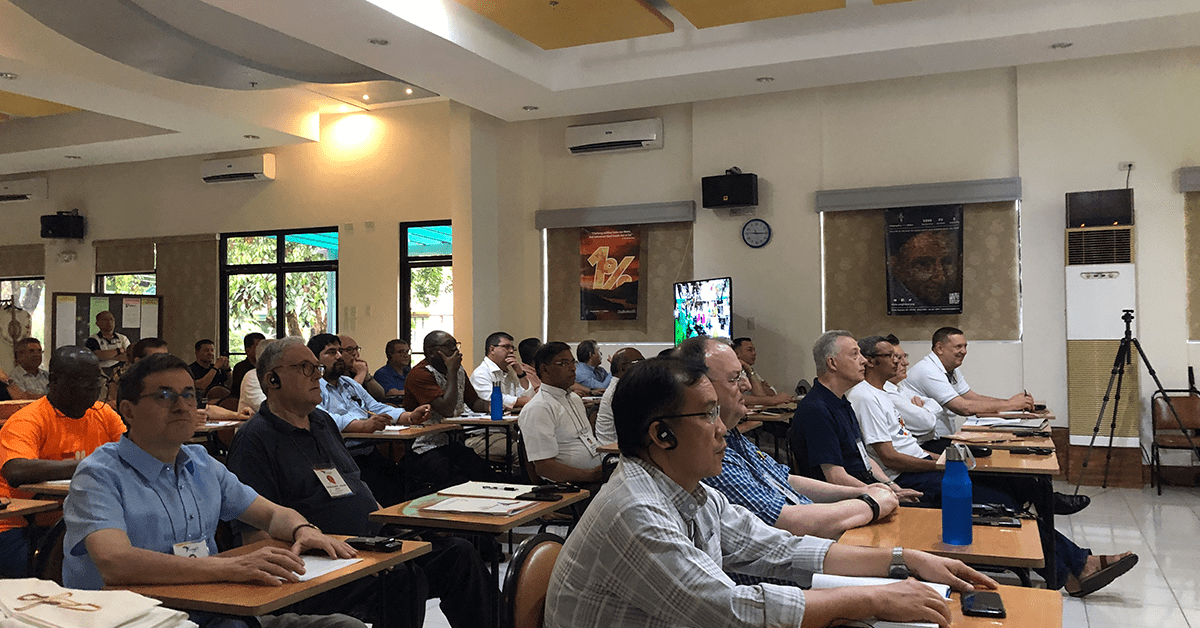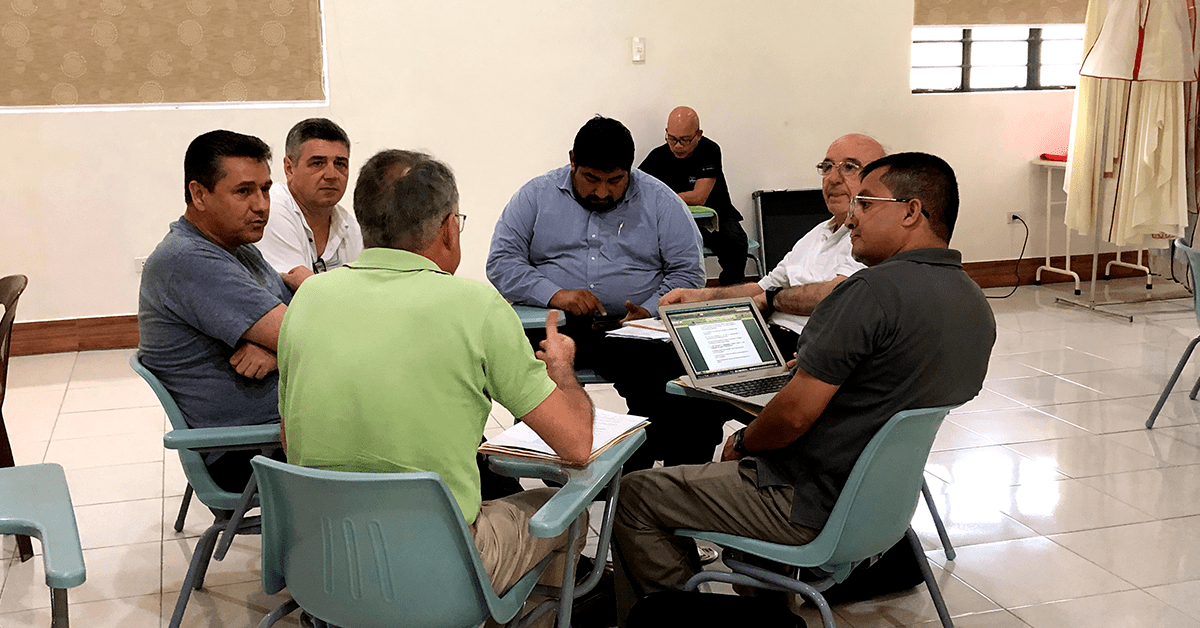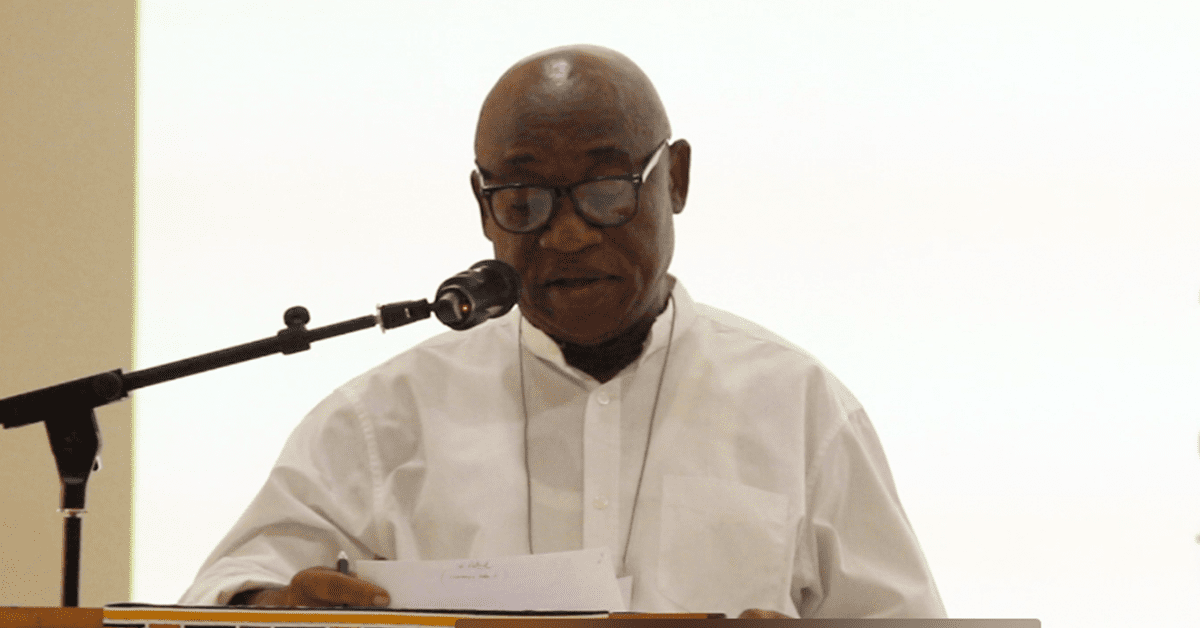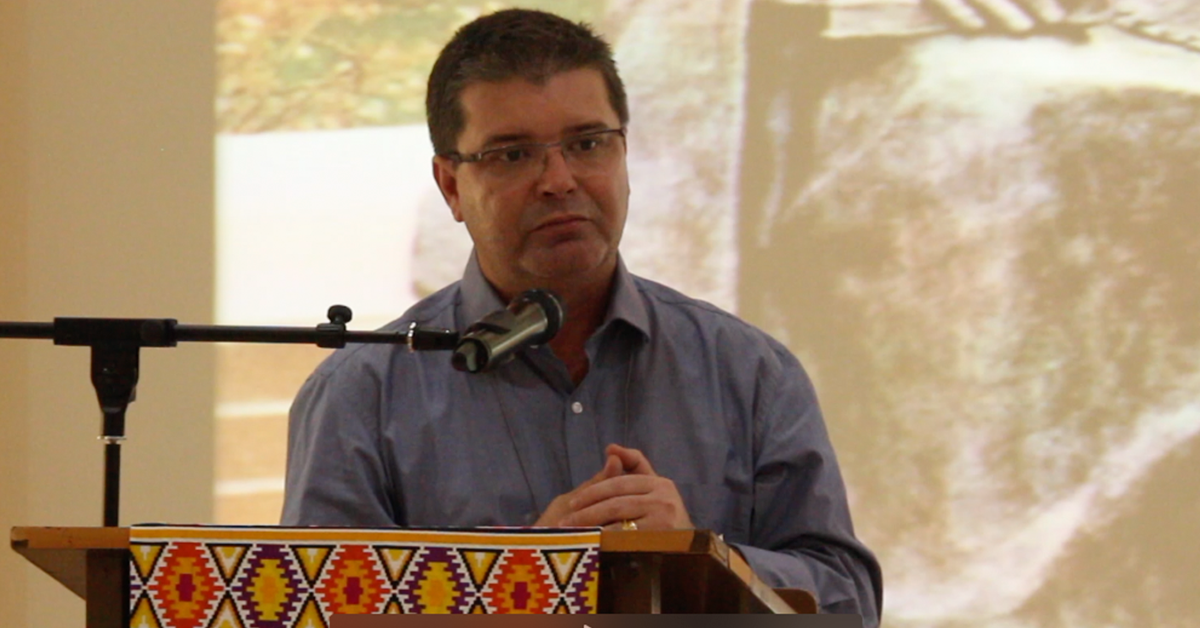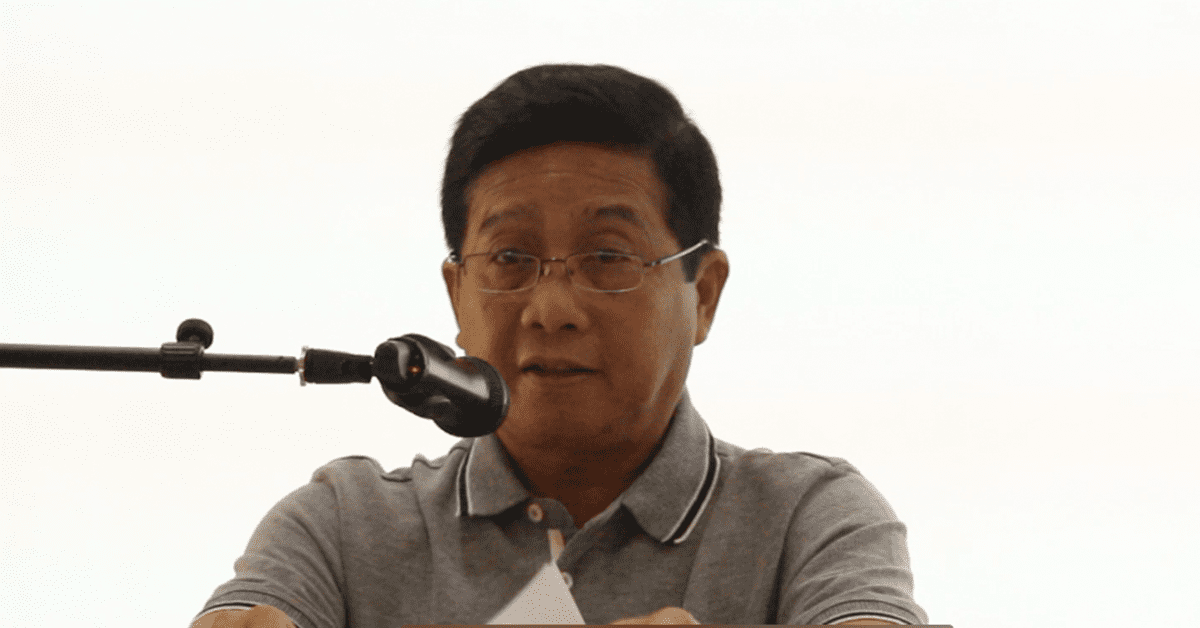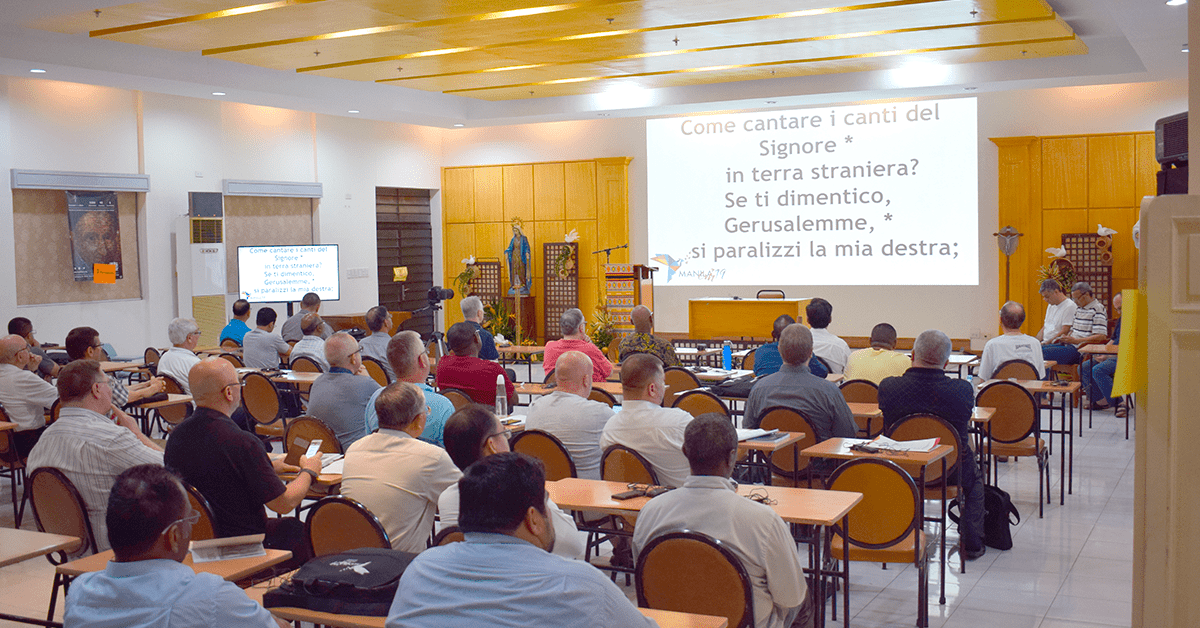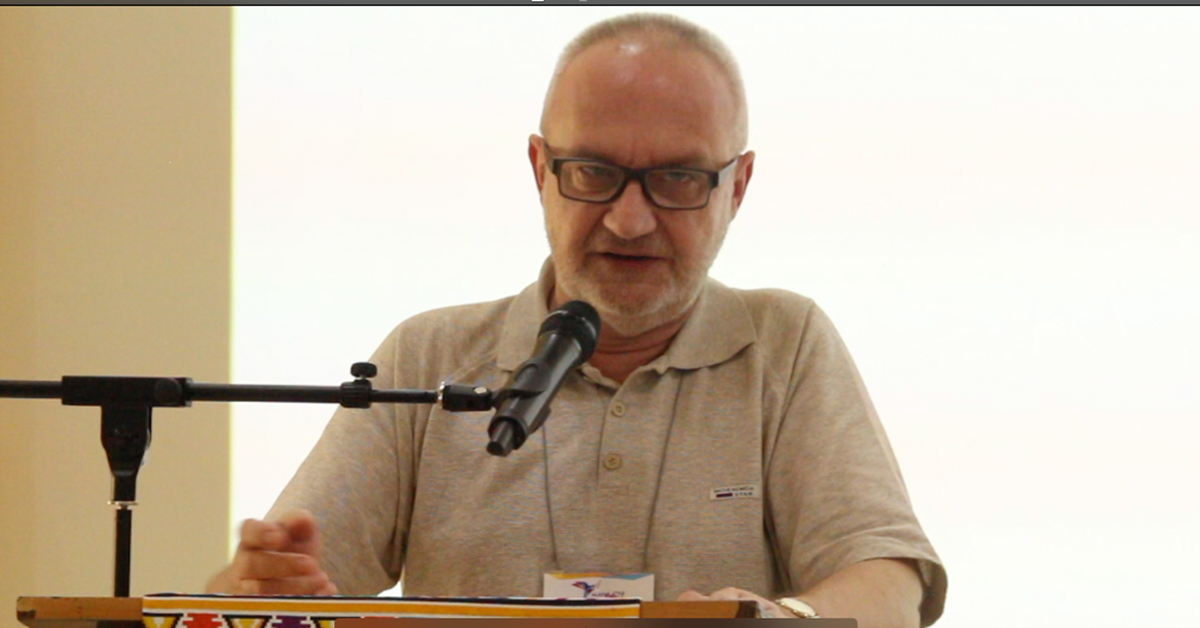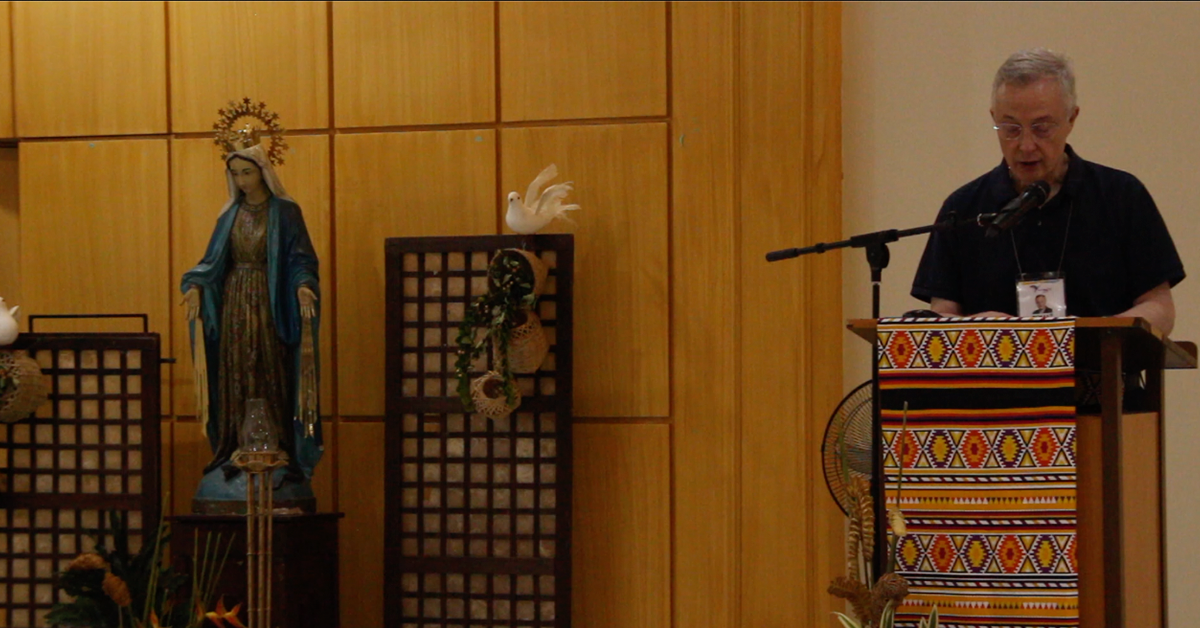The day started with the celebration of the Eucharist in the Italian language. Morning Prayer was incorporated into the Eucharist which was presided by Fr. Yosief Zeracristos, CM.
After breakfast we started the session with a video presentation in order to recap yesterday’s events. Highlights included short interviews with confreres on two questions: 1. What are your expectations from this encounter? 2. What are your thoughts about the call to conversion contained in Pope Francis’ Apostolic Exhortation, Evangelii Gaudium?
That presentation was followed by a 15 minute testimony from the visitors of Nigeria, Indonesia, Rio de Janeiro, and Poland (they spoke about the manner in which they improved their program of initial formation in the light of the new Ratio Formationis).
In this session Fr. Antonio Moreno, SJ, gave a presentation on “Interculturality in Formation”. He stated that being an international and multicultural community, interacting with members from other nationalities and trying to be culturally sensitive to others … this does not guarantee interculturality. He emphasized that our openness, willingness to learn, inner disposition of respect, humility and zeal to engage people of different race, language and culture help create spaces for cultural differences to emerge and interact. This builds trust and confidence. He stated that our openness to Inculturation in our communities would lead to an inclusive approach in our shared ministries, would facilitate future communal discernment, collaboration, networking, and finally, would enhance our missionary zeal and our ability capacity to go anywhere.
The afternoon session was spent in language groups sharing on the following three questions: (1). What can be done to continue the process of inculturation during the stage of initial formation? (2). Is there some new initiative to motivate the formation of formators? (3). Regarding the Ratio approved ad experimentum … can we think of a methodology to review and improve the Ratio? Time did not allow the confreres to share their views in a plenary session.
In the later part of the afternoon, Fr. Tomaž Mavrič, CM, shared his reflections about Vocation Ministry with reference to the presentation and discussion of the Encounter held in Paris in 2018. Father General is convinced that our concern for vocations is a concern for everybody and thus a priority for the whole congregation. He encouraged everyone to help establish a culture of vocations. We have to find our roots from our founder Vincent de Paul who used a two-pronged strategy namely: prayer and witness. In prayer, we beg the “Lord of the Harvest” through the intercession of St. Joseph to send workers to the vineyard. In witness, we give priority to our fraternal love as “dear friends” in the community and to our missionary zeal, for the salvation of humanity.
He furthered reflected on the threefold dimension that makes up every culture namely: mentality, the way we think, (the language of the mind); sensitivity, the way we feel (the language of the heart); and pedagogy, the way we do things (the language of the hands) to be able to cultivate the culture of vocations in every community of the province.
He emphasized the need for formation of confrere-formators in all stages of formation in our seminaries and the on-going formation of all missionaries to live their vocation in such a way that by their lifestyle they attract others to the Congregation.
After dinner we had a camaraderie over chilled San Miguel beer, fried ‘itik’ (duck). And hot ‘balut” the exotic fertilized duck egg which has become a challenge for most of the confreres, Truly, it’s more fun in the Philippines!!
Fr. Raymundo Regua, CM
Chronist, Province of Philippines
